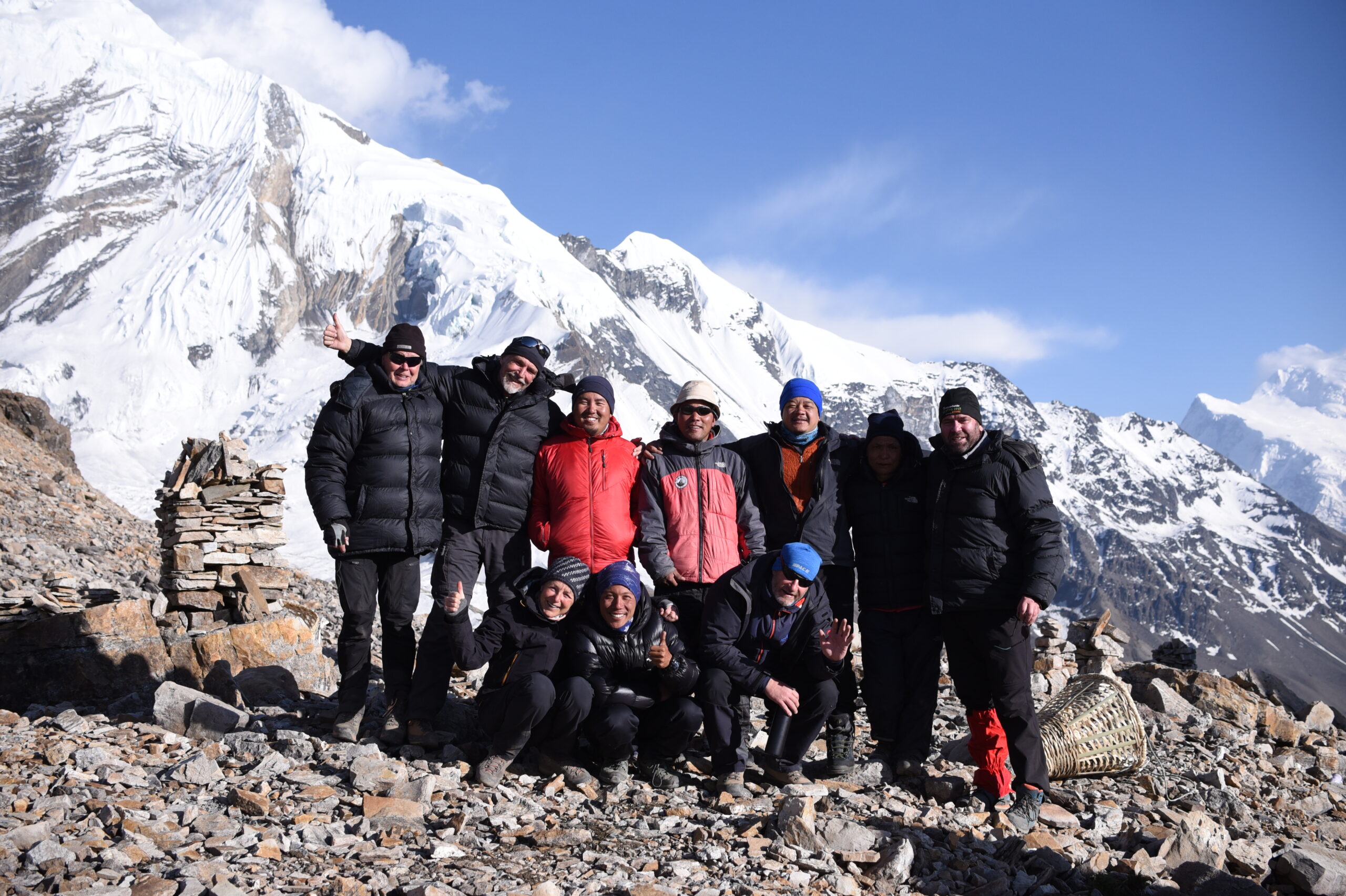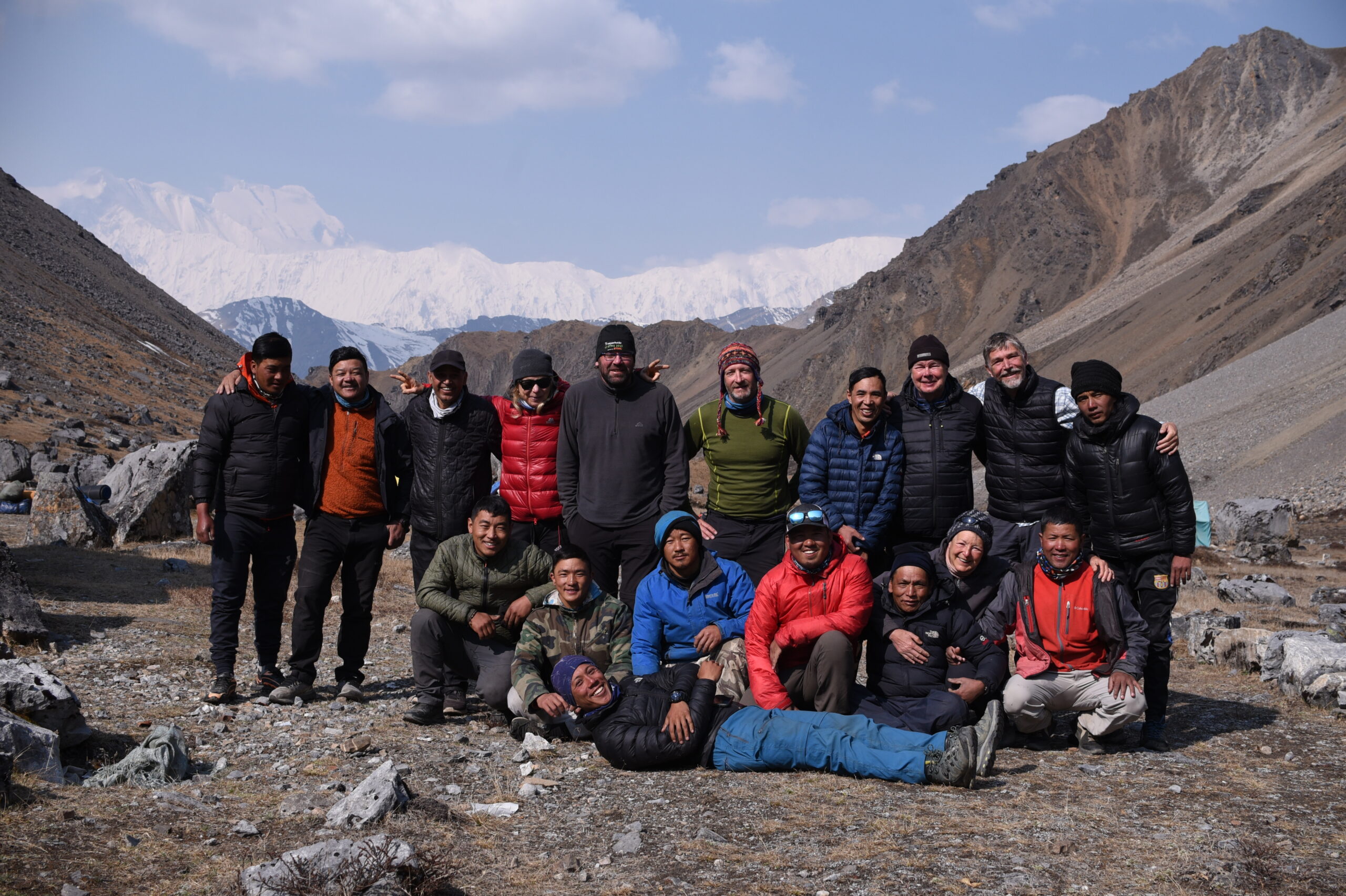The Guide, is in overall charge of the trek, expeditions and, more importantly, looking after you before, during and after the trek and is the person to see if you have any problems or questions. Our guides undergo extensive training and are completely knowledgeable in all aspects of trekking. They are salaried dedicated, freelance or hired professionals and are selected for their empathy and knowledge of Nepal. HETT- Nepal only employs local guides, after all, who better to show you the Himalaya than the people who live there! The Sardar, if you are in large group, is in-charge of the actual trek operation; supervising night stops, sorting out porter loads, allocating tasks to Sherpas, looking after the staff and lots more.

HETT- Nepal experienced teams can take you anywhere from the lowest to the highest or most remote. Your Trek is an opportunity to spend time with locals; one of the great delights of Trekking. They may be a little shy at first, but a smile goes a long way and you will find them excellent company and great fun.
We have the menus as much as we can on the trek with a delicious mixture of Asian and Western cuisine. The lodge cooks are masters at preparing food under less than ideal conditions! Wherever possible, they use local fresh product, but when it’s not available they rely on packaged food. The menus look very extensive, but we have chosen the simple, high-energy foods, based on rice and vegetables, that are best for trekking. There are some local specialties like Apple pies you must try! Remember that the milk will be powdered (added to water) so always ask for hot milk or drink lemon tea! If you see fresh fruit offered in lodges, make sure you can peel it and avoid salads or raw vegetables, unless you are 100% sure that they have been soaked in iodine water. The last thing you want is a stomach ache!
Trekking through the Himalayas is for those who prefer a less cosseted vacation. On the camping trek, we get up and go to bed with the daylight, and relax in warm sunshine after a leisurely lunch.
– We provide all camping and cooking equipment. These treks are staffed by a full local crew, including a main guide, porters, cook and assistants. Your main baggage is carried by porters. It is the camp our crews’ job to perform all the camp work, including leaving the sites clean. Food on trek is a mixture of Western and local dishes with plenty of choice. Our menu is based on fresh food to provide three nutritious and tasty meals a day. We can cater for specific dietary needs if we know in advance. All trekkers are pleasantly surprised at the quality of the meals.

As all our Annapurna/Everest Treks go above 2,000 meters, HETT – Nepal schedules are carefully designed to minimize the effects of Altitude. We ascend slowly, for safe acclimatization. Headaches and breathlessness (Benign Mountain Sickness) are common at altitude and are, in themselves, nothing to worry about. In rare cases, this may develop into Acute Mountain Sickness (AMS), so the Guide keeps a close watch on everybody, as he/she is trained to recognize the symptoms. If anyone shows signs of severe headaches, nausea, lethargy or in extreme cases, ataxia (loss of co-ordination) and serious breathlessness at rest, they will be evacuated to a lower altitude immediately. The Guide’s decision on descent is final. The worst effect of altitude is worrying about Altitude! As long as you maintain your body fluids with at least 3-4 liters per day, ascend according to the itinerary, and are adequately fit, you will most likely to have no problems apart from the normal breathlessness on hills.
Please inform your guide if you have any symptoms and / or if you are taking medication. Your Group Leader / guide can give you more advice, or you can consult the Himalayan Rescue Association in Kathmandu or any trekking book on our Reading List.